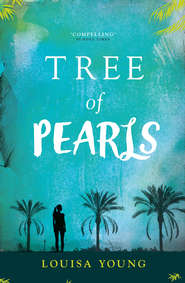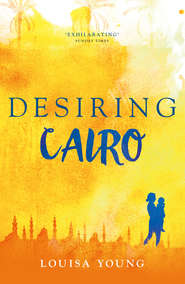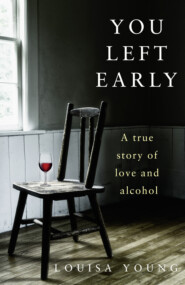По всем вопросам обращайтесь на: info@litportal.ru
(©) 2003-2024.
✖
The Heroes’ Welcome
Автор
Год написания книги
2018
Настройки чтения
Размер шрифта
Высота строк
Поля
‘Elen,’ said Riley and Bethan.
Elen’s mouth was white as she swept past. Merry hopped out of her way.
‘Elen,’ Riley said again, and turned to follow her. Bethan put her hand on his arm. They both heard Elen say, at the front door, ‘You might as well go in. I don’t know why he’s bothering to be tactful.’
Merry was still staring when Nadine appeared in the kitchen doorway, and said, ‘Hello,’ quietly.
‘Miss Nadine!’ cried Bethan, and John shot Riley a look, and Riley took a big breath before stepping to her side, past the chair and the coal scuttle and Merry. Quick to the kill, quick to the kill.
‘Mum,’ he said. ‘Dad. Nadine and I are married.’
It was Merry’s face his eyes landed on. Big tears were on her young cheeks.
‘Oh, Merry,’ he said. ‘Oh, Merry.’
Silence drifted, pulled and swung between them all. Then Bethan said: ‘We would have liked to have been informed.’
John held his hand out to Nadine. ‘Married,’ he said. ‘You married our boy? Well. Well. Good for you, Miss.’
‘I know it’s all odd,’ Nadine said. ‘Please call me Nadine. I think that will make it less odd. Please.’
Bethan gave a kind of roll back on her heels, a surveying look with a chin lift, which said, ‘so that’s how it’s going to be’.
‘It’s all right, Ma,’ Riley said. ‘We were afraid of a fuss. That’s all. We didn’t even want a wedding. We just wanted to be married.’
‘All your worldly goods, eh, Miss?’ said Bethan. ‘There’s nice.’
‘I don’t have much,’ said Nadine, and got a withering look.
‘Who’s going to wear the trousers, if you’re to be a kept man, Riley?’
‘Mum!’
‘Wounded hero only lasts so long. What about when you’re just a sick, ugly man with no money? Where are you going to find a job to keep her? No offence, Miss Nadine, and I’ve always liked you well enough.’
‘None taken, Mrs Purefoy,’ said Nadine, mortified. ‘I like you well enough too. Riley, should we give them a little time to get used to it, perhaps?’
Bethan was grinning. Riley saw her waiting for him to agree to Nadine’s suggestion. She has cast it now that any time I agree with my wife, I am less than a man. And any time I disagree with my wife, she can say, ‘I told you so.’
‘Mum,’ he said. ‘Don’t be foolish over this. Had to happen one day, eh? Dad?’
‘Come round for Sunday lunch next week,’ John said. ‘They’ll calm down. Congratulations, son.’
Riley thanked him. It was all so quick.
Merry was still crying. Riley said to her: ‘I’m sorry for being such a bad brother. I’ll be a better one.’
Merry said: ‘Are you my brother?’
They crossed into Kensington Gardens, holding hands, walking into the green. Up the Broad Walk, beyond the Orangery, the pleated new leaves of the arcaded hornbeams gleamed in the sunlight like Venetian glass. Through the observation windows in the hedge they caught sight of the Sunken Garden, terracing down geometrically, with its long pond and lead planters.
‘Our mothers are afraid for us,’ he said. ‘That’s all.’ He could understand the fear without feeling any obligation either to adopt it himself, or to try to make the situation more acceptable to them.
Nadine said: ‘If they haven’t the sense and courage to look at us and give us every bit of loving support in the world, then they can go to the devil.’ She glanced up, as if to check. ‘I shall feel nothing but relief,’ she said, ‘that I don’t have to deal with them.’ She was wearing that green wool dress of Julia’s, too hot for the day, but she had been living in uniform for so long she had no clothes of her own, and during the long, quiet hibernation at Locke Hill, she had made none nor bought any. With Julia still hardly leaving her bedroom it made sense for Nadine to borrow her clothes. She was still wearing the high lace-up boots, and the cap. Riley had a surging feeling of freedom at the idea that she might now acquire some clothes. He wanted to kiss her. Will my desire for her fade? he wondered. How long am I to live with this?
They stayed in the gardens late, wandering, sitting on benches, talking mildly.
The irony was that what Jacqueline and Bethan were scared of was true. The surface of society had been blown around by the war, but had the architecture changed? Were things going to be different now? Where would a Riley, married to a Nadine, fit in? If Nadine were straightforwardly posh, and he straightforwardly a working man, might it be simpler – if only simply more impossible? But she is half-foreign and artistic,he thought, and I am a semi-educated semi-adopted cuckoo in the nest. And my face reminds everyone every moment of what I have given for them, and of what they want to forget about now. And don’t we all …
They had arranged for two rooms in Chelsea, and they would work. They had considered education: they both half felt they wanted more of it, and concluded that at twenty-three they were too old, and then doubted their conclusion. Certainly, no one was ‘going back’ to anything. They weren’t mourning some pre-war Utopia, the golden years before the Titanic sank and Captain Scott died on the ice and the Empire and Ireland started to bite back. For Riley and for Nadine, looking back would involve unbearable regret about what might have been. Unbearable. So there was nothing to go back to.
And the war was still over.
Nadine said, as they wandered over to the Round Pond: ‘We’ll have to take ourselves outside all that and create our own new world. Chelsea will be the start …’
She said, as well, ‘You seem to feel you need to justify your existence, but you don’t.’ And he replied: ‘Yes, I do. I don’t know why, but I do.’
And she said: ‘Take your time. We have time now …’
‘I don’t want to take time. I want – I want—!’ He’d been stuck for too long, resting, recovering, receiving, disengaged. ‘We’re not going to be living off your parents, at twenty-four. I’ll be doing something.’
‘It does seem ridiculous that just because your wound is in your head, you get no pension for it …’ she said. ‘When if it had been a toe, even—’ She stopped. They’d said this before. It annoyed him. And it was his territory.
‘It makes sense,’ he said. ‘They only needed our bodies to follow orders. They didn’t value our heads then; why should they value them now?’
She laughed.
By the time the keeper called for closing, the damp, growing, evening smell of the park was rising around them: moss, tubers, lilac, hyacinths. At Locke Hill, during the half-paralysed, shattered, Rip-Van-Winkled winter, Nadine had marked the days of emergence from hibernation by drawing each flower as it appeared from black earth and mossy branches, marking the way to spring: snowdrops, aconites, crocuses, scilla, stars of Bethlehem, grape hyacinths, daffodils; camellias, almond blossom, cherry blossom, pear and apple blossom. Harker, the silent, ancient gardener, would quietly nudge her towards each new arrival. It seemed like progress, of a sort.
They were restless. The marriage rooted them to each other, but everything else was still nebulous and reverberating.
‘Perhaps our brains are still shaking,’ she said. ‘I still feel jumpy. It’s too soon to settle.’
‘I’ve heard that it takes as long to get over something as you spent in the something you’re trying to get over,’ he said. ‘Makes a kind of sense.’
She smiled at his beautiful face. ‘That’s good,’ she said. ‘So we’ve got till, say, 1923. Barring future crises.’
‘1923! Where will we be then?’
‘One thing at a time,’ she said. ‘Honeymoon first.’
Honeymoon.
And that night, rattling in the separate couchettes, which gave an excuse for not thinking about that, for the moment, on the train to Paris, he couldn’t stop thinking about decisions, and the future, about how strange it was to be able to think about those things. There was going to be a future. He looked towards it, consciously, turning his mind away from the past the way a car’s lamps turn at a junction: illuminating possibilities, the road ahead, with beams of light that do not, cannot, show everything. As the car turns the lights are only ever shining straight on, out over – what? Another path, a path you won’t take and can’t know, that you glimpse in passing. It’s the future, it’s forward, but what forward entails, you can’t know. It’s shocking enough for now, after those years of orders and terror and imminent death, that forward even exists. He and Nadine had a forward to go into. They had choices. They had decisions to make. They had a degree of power. It was quite peculiar.
He was hideously aware of her, lying beneath him, separated by the padded wooden shelf he lay on, rattled and thrown around by the train.
Chapter Two (#ulink_b6ae7249-48f4-52af-a7fe-2ebe64c98ea9)











